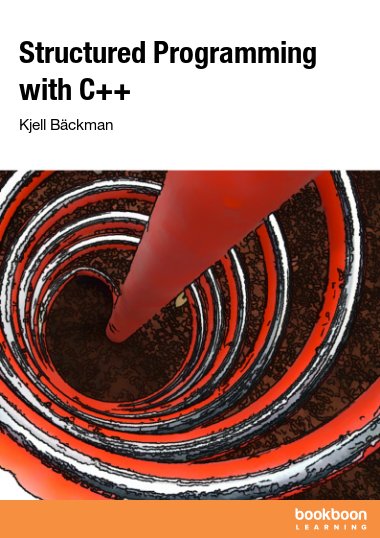Structured Programming with C++ is intended as course material for the course Structured Programming with C/C++ at university level. It can also be used as self-learning material.
Each chapter contains theoretical parts and programming examples. At the end of each chapter there is a bunch of exercises for your practice. At the end of the book you will find solutions to the exercises.
The purpose of the book is primarily to teach how to ”think programming” and secondarily to teach C++ code. Therefore, I will emphasize how to focus on the problem solution and prepare the coding

